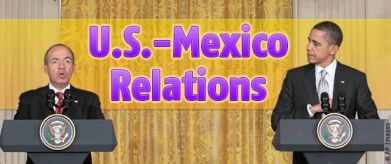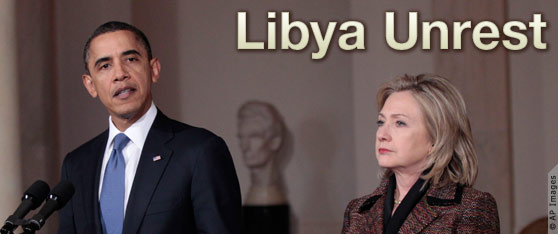President Obama announces more humanitarian aid for Libya. Secretary of State Hillary Rodham Clinton unveils a new initiative on women’s leadership. Global food prices have reached record highs. Learn about the legacy of the Alliance for Progress, launched by President Kennedy in 1961. And an Indian artist offers up a monumental work.

More Humanitarian Aid for Libya
(mobile version)
President Obama says the United States and other countries will stand with the people of Libya and announces additional U.S. humanitarian assistance to support international aid organizations in Libya. Both the United States and Australia support democracy and human rights around the world and will stand with the Libyan people, says Obama in remarks with Australian Prime Minister Julia Gillard.
Women’s Leadership Initiative
(mobile version)
Secretary of State Hillary Rodham Clinton launches a new initiative aimed at using international exchanges to nurture women in leadership positions around the world. “Women’s Leadership: The Next Hundred Years” is sponsored by the U.S. Department of State and is bringing 100 women leaders from 92 countries to the United States this year to explore women’s political, economic and civic leadership.
Food Prices Reach Record High
(mobile version)
Global food prices reached a record-high level in February, driven mainly by higher prices for cereals, meat and dairy products. The increases have raised concerns that millions more people could be pushed further into poverty and civil unrest could result, according to the U.N. Food and Agriculture Organization.
The Alliance for Progress
(mobile version)
In 1961, President John F. Kennedy launched the Alliance for Progress, an ambitious foreign-aid program for Latin America which called for broad social and economic reforms. Although the Alliance is perhaps largely forgotten now, it marked a fresh approach to U.S.-Latin American relations, says Arturo Valenzuela, assistant secretary of state for Western Hemisphere affairs.
 Maximum India’s Falling Fables
Maximum India’s Falling Fables
(mobile version)
Indian artist Reena Saini Kallat’s monumental installation, Falling Fables, celebrates and mourns the passing of time and disappearance of architecture. On display at “maximum INDIA,” a 20-day festival of dance, theater, music, art and crafts at the Kennedy Center for the Performing Arts in Washington, the work is a massive fallen pillar covered with more than 30,000 hand-crafted rubber stamps, Kallat’s signature motif.










 Finding Missing Kids Online
Finding Missing Kids Online

